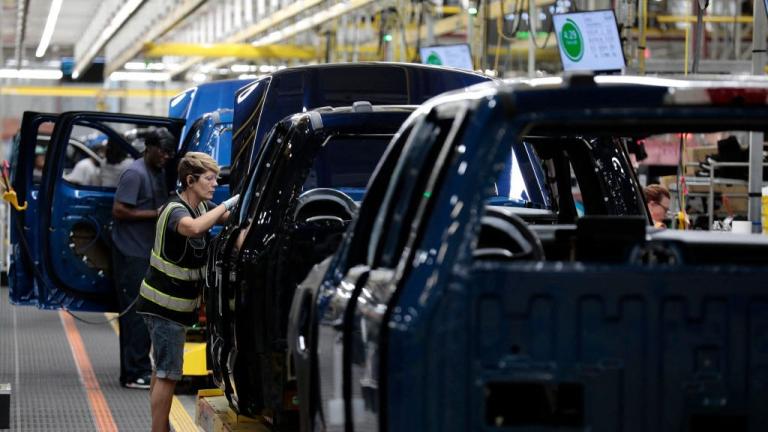 On Monday, John McCain will deliver a speech on climate change from Portland, Oregon. In it he will lay out the framework for climate policy under a McCain administration. After a primary spent shoring up his credentials among the Republican base, this is the beginning of his general election strategy: Operation I’m Not Bush.
On Monday, John McCain will deliver a speech on climate change from Portland, Oregon. In it he will lay out the framework for climate policy under a McCain administration. After a primary spent shoring up his credentials among the Republican base, this is the beginning of his general election strategy: Operation I’m Not Bush.
(One important note: the speech is not on energy. McCain will be delivering a major speech on energy in a few weeks, probably early June, wherein he will lay out specific thoughts and policies on coal, nuclear power, renewables, etc. Today is all about climate policy.)
It comes as no surprise that the focus is on a cap-and-trade program, something McCain has supported for five years. In fact, there is virtually no mention of any emission reduction policies outside of cap-and-trade — no efficiency or fuel economy mandates, no electrical utility decoupling, no mention of public transit. McCain obviously retains his conservative allergy to regulation and public spending. There is some discussion of funding research and incentivizing market deployment of new technology, but the details are tantalizingly vague. Perhaps they’ll be fleshed out in the energy speech.
One area where McCain deserves big kudos: He devotes a good chunk of his speech and his policy plan to adaptation, something that’s been too far under the radar in climate discussions. Substantial impacts from climate change are inevitable, and it’s high time the federal gov’t got serious about coordinating and funding local efforts to prepare.
As for the cap-and-trade program itself, McCain’s basic targets and mechanisms are roughly in line with what others have proposed. He would aim for 1990 emission levels by 2020, and 60 percent below 1990 levels by 2050. That long-term target falls short of the "80 percent by 2050" recommended by the IPCC and beloved of climate activists, but the short-term target is roughly in line with what’s offered in the Lieberman-Warner bill and Barack Obama’s plan.
It’s the cost-control measures that are sure to be controversial. McCain does not include the much-maligned "safety valve," whereby carbon prices cannot exceed a pre-set cap. He does, however, propose to allow unlimited use of domestic and international carbon offsets for compliance with the cap, at least initially. He would also give away rather than auction a substantial portion of the original pollution permits. (The level of compliance permitted via offsets and the number of permits given away will both decline over time, on a schedule determined by the Climate Change Credit Corporation, the public-private agency McCain proposes to oversee the program.)
As for permit allocation, the arguments for 100 percent auction are well-trod. But the compliance-via-offsets issue hasn’t been nearly as hashed over. On the positive side, it would create a means for picking low-hanging carbon fruit outside the sectors covered by the program, ensuring low compliance costs in the early stages. On the negative side, for that very reason the massive changes needed in the American economy and infrastructure will be put off, and dirty coal plants may remain economical long enough for a new round to get built. (I’m going to explore the offsets question in a separate post.)
Finally, McCain takes an entirely sensible line on international negotiations, pledging to lead the post-Kyoto UN process and offer incentives to sweeten the pot for China and India to sign on. He also says that in the event they will not sign on, he’ll support trade mechanisms that would penalize them for the carbon content of their exports (something Obama also supports). However, his policy adviser Douglas Holtz-Eakin assures me — contra what he implied earlier this year — that McCain will implement mandatory caps in the U.S., regardless of whether China and India follow suit.
So what’s the overall verdict? I’ll explore the plan more in coming days, but my initial reaction is that it’s better than expected, somewhat short of Lieberman-Warner, and far short of what Obama has proposed. It should comfort us that a McCain presidency will mean real action on climate change, not the shell game Bush is engaged in. But it’s hard to see how McCain can claim the allegiance of voters who rank climate change as a top concern. He’s still behind the curve.


